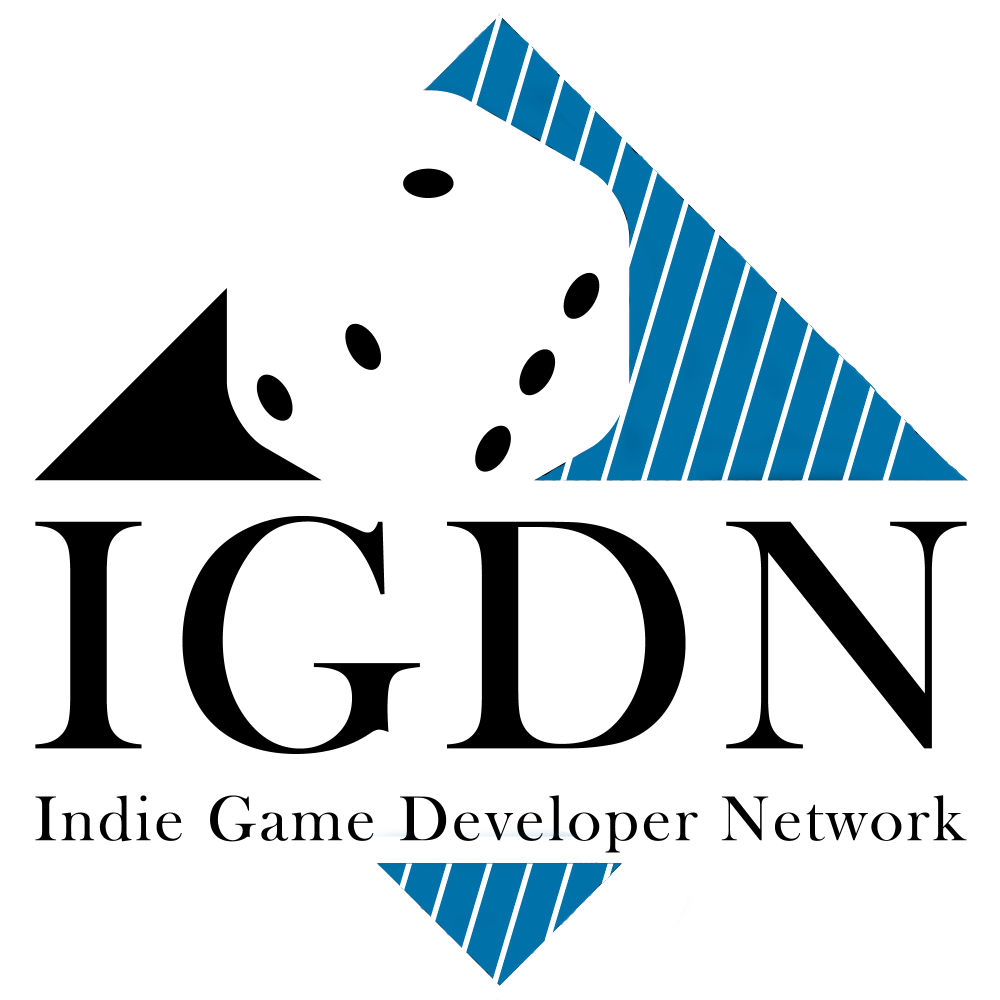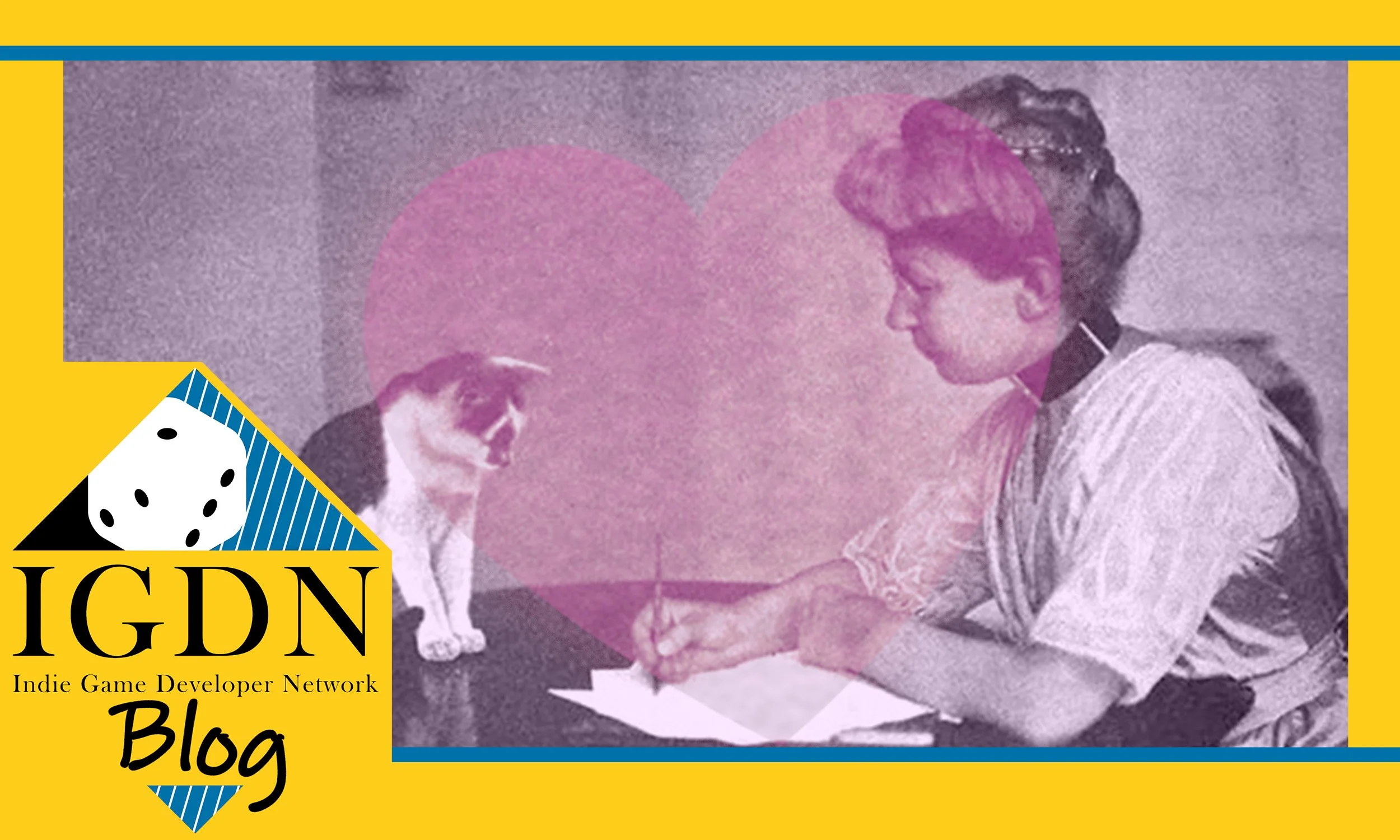Be Kind to Yourself
Be Kind to Yourself
Putting the indie TTRPG space in perspective
BY JAMES KERR OF RADIO JAMES GAMES
Let’s start with the bad news. Most indie TTRPG publishing houses fail after about four years. In this time they will probably publish only one or two fully-formed products, or a slew of half-baked micro-zines, until they decide: "Whoopsie-doodle—look at that, publishing is hard. I do not gain enjoyment from this. Shucks,” and quit.
Yes, publishing is hard, but it doesn't have to be quite that hard, if you’re kind to yourself. The first step is gaining perspective.
The Roles in Publishing
What is normal practice for a small indie TTRPG publishing house is to take on all roles yourself and burn-out trying to juggle the skillsets of multiple professions on unreasonable deadlines.
There’s a reason other print-digital media industries don’t try to operate as solo operations. It does not work for long, at least not when your expectation is that you should be able to do it on the same timetable as a bigger house.
Here’s all the roles you should have in a TTRPG publishing house:
Developer (person coming up with the TTRPG rules)
Writer (the Developer does not necessarily know how to write)
Editor (a Writer is not an Editor)
Art Director (making big-picture stylistic decisions)
Artist (often the same as the Art Director, but that’s not always ideal)
Layout Artist (see above, again)
Marketing (yes, this is a whole, actual job and it is not the Publisher’s job)
Publishing (the person with 10,000 foot strategy, doing the big concept stuff. The administrator. The business person)
Distribution (usually just the Publisher again)
Even with a setup like that, the rest of everything has to be freelanced out, including:
Proofer (Editor, Writer, and Proofer are not the same thing)
Cartographer (as applicable)
Sensitivity Reader(s)
There’s more but I risk belabouring the point
Some of those roles can handle multiple projects, sure, but let’s look at those roles above as aspirational.
More often small TTRPG publishing houses start as one-person shows that freelance the few things they can’t do (typically art). Your little indie publishing house will get stuck at that state and never expand to the point where your timelines and expectations become reasonable.
I know you feel you have to do it that way, like you’ve got no choice because there’s no money, but what you save in money you pay for two-fold: in increased cycle times and in coming to despise something you love.
Doing It All Yourself
So, you’re a one-person indie TTRPG publishing house? Well, that’s a hard road. You saw all the roles above that are ordinary in most print and digital publishing ventures. (I’m drawing on my experience in trade magazine publishing as well, here.) It’s important to understand that each one of those is its own profession. To be a one-person publishing house you’re proposing taking on multiple professions, and you’re not going to do all of them well.
When I say this to small publishers they usually hand-wave what that really means, so let’s use the band analogy. You want to make your own music, but you can’t get anyone else to join, so you play every instrument. Perhaps you’re not as good on drums as you are on bass, and…it’s probably going to show. Sure, some people do this—some people do it well—but it’s always better if you include someone who knows what they’re doing on drums.
And doing it all yourself does not make anything go any faster. It just takes you that much longer to get the things you’re not terribly great at up to snuff, if you even can. Brute-forcing art does not usually lead to a good final product.
Meanwhile, your adoring public expects one to three products a year; otherwise they’ll (quite unkindly) deem your house and endeavours dead. If you are juggling a full-time job, a family, or other commitments, you’ll see that releasing at that pace is not tenable without help.
At the very least, I’d encourage you to not release as often as your industry expectations dictate. You don’t owe anyone your artistic product. Maybe it’s just going to take longer, maybe it’ll involve other artistic compromises. It’s still better to publish than to not. But you can’t expect to work by your own timeline and still maintain public interest.
Ordinary Burn-out
When you've taken on several jobs’ worth of duties and ended up churning out only one or two products, you’ll be buried in the misery of the disconnection between tiny showings and tremendous effort. This is a common frustration. Of course it’s not fun anymore; you just did the work of a whole office, probably in your spare time, expecting to be able to release the same as a medium-sized publishing house, and feel bad when that proves to be actually impossible. That’s not normal. Well, it shouldn’t be.
Let’s look at a model that works a little better. Small newspapers and small, small magazines are sometimes two-people jobs with a bunch of freelancers, and I think that’s probably a lot more stable of a model than a solo go. One person takes on editorial, one person art, and one or the other wears the publishing hat with all the marketing duties that can sometimes entail. That breakdown is usually:
Person 1: Publisher + Developer + Writer + Marketing (Strategy & Copy) + Distribution
Person 2: Art Director + Artist + Layout + Marketing (Visual)
Freelancers: Editor, Sensitivity Reader, More Artists, Cartographer, Proofreaders
If you get a little bigger, then you can hire more people and put out a product in a quarter. But we haven’t even talked about the business side.
Smart Business >< TTRPGs
To cite a key industry exception, when Chris Birch founded Modiphius he already had under his belt a career in business. He leveraged his experience in licensing brands to secure several key IPs, and by doing so Modiphius came out of the gate with a punch. I bring up Chris Birch as an exception, though, to illustrate the point that you don’t have too many business-savvy folks giving up their cash cow to convert it into a TTRPG publishing house. Heck, even taking the most shallow dips into the life of Gary Gygax shows you he wasn’t the most business-oriented fellow. (“How do you make a million dollars in TTRPGs? Start with two million! Waka-waka!”)
This trend runs as a heartline through the entire hobby. The folks running your FLGS are passionate nerds first, and business people maybe a distant third or fourth.
The challenge of learning the business of publishing is made even harder if you’re having to learn the business of business as well. It sure would be a good idea to know business before going into TTRPGs. You’d be wise to have a business partner, with one of you creative and the other business-y. Those partnerships never go awry! (They do, obviously, but, “nothing ventured...”)
TTRPGs Are a Cottage Industry
Even if you know publishing, and even if you know business, then there’s still the issue of getting to know the TTRPG publishing business specifically.
You should know that this is a strange industry, utterly dominated by a single major player like the Evil Empire, with only about a dozen other biggish players coming up not-closely behind. The entire indie space squabbles over a shockingly small remainder. Given all that, here’s a number for you...
Most indie TTRPGs only sell 300-500 copies in their entire life cycle.
It’s important to step back, do the math, and figure out if you’re happy with that or not.
If you’re in the middle of a mid-life crisis and looking to embrace your passion, the TTRPG industry is unlikely to sustain you. It’s a hard road as a freelancer (as I worked for almost two years) and just as hard as your own publisher (as I’m doing now, but, like most of the industry, with a day job.)
Make Your Choices
But let’s say you quit your job and throw all your money into starting a TTRPG publishing house. Good for you, follow your dream.
With fair passion and a little seed money, you can pretty much make any business last for four years. During those four years your product could be amazing. You could be amazing. Maybe all you want is those four years of TTRPG publishing glory. But you’re unlikely to push past that mark unless you’re prepared or can learn many new jobs at a furious pace.
Small indie TTRPG publishing is not a doomed practice. But if you find you are trying to wear too many hats, or expecting an unrealistic cycle time, or lack best business practices, of course you’re going to have trouble crossing that four-year mark. There is just that much to know. So, be armed. And be kind to yourself.
Rising and falling in four years isn’t so bad. Flash-in-the-pan houses can produce some of the most interesting creative works in the industry. Given the option between a failed attempt and not even trying, I’ll take the former any day. But as much as I love flash-in-the-pan, really creative, interesting works, what I’d prefer is an industry where people get to stick around for a while.
Be Kind to Yourself
I’m convinced that the first step is to stop feeling bad. So your book took too long to come out. So what? So you’ve put all this work into it and it’s only sold 200 copies. So what? You did it. So you’re worried people are buying it as a shelf-warmer or just to support you and not actually playing. So what? People enjoy TTRPGs in different ways. Take the wins where you can get them, and be kind to yourself.
Don’t fall into the trap of thinking that just because you have fun doing something it should mean you don’t have to eat, or pay rent, or live. And don’t suck all the fun out of something you like because you didn’t realise how much work it was going to be. Hopefully, setting some expectations helps.
As I cross the five-year mark with my own TTRPG publishing ventures, I’m forced to reflect on our little industry. I say this with love, and I include myself in this—we have an industry filled with coffee-addicted anxiety-ridden shut-in folks stuck on childhood obsessions trying to turn their adult pains into art. And yet we expect these same people to thrive, unprepared, and overwhelmed, in a competitive business scene? We are an industry in need of self-care, both on a personal and professional level. If you want to rise above the norm of a crashing four-year cycle, the first step should be to value your work, value your time, and above all, just value yourself.
This IGDN blog article is brought to you by James Kerr of Radio James Games. If you want to get in touch with the contributor he can be reached at info@radiojamesgames.com or visit their website at www.radiojamesgames.com.

